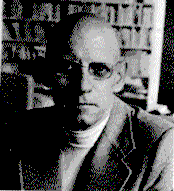
Michel Foucault (born Paul-Michel Foucault, 1926–1984, in Poitiers) was a French philosopher, historian of ideas, social theorist, philologist and literary critic. He was greatly influenced by Nietzsche, Marx, Bachelard and Canguilhem, earning the aggregation of philosophy in 1951. After two suicide attempts, his consultations with a psychiatrist led him to become interested in psychology, and he completed the diplôme in psychopathology (1952) and in experimental psychology (1953) at the Institut de psychopathologie in Paris, after which begins teaching in the Faculty of Letters at Lille. Influenced by Louis Althusser, his mentor at the time, Michel Foucault joined the Communist Party between 1950 and 1953. Between 1955 and 1960, he held various positions abroad, in Sweden as director and cultural attaché of the French house of Uppsala, then traveled to Warsaw before spending two years in Hamburg.
Upon his return to France, Michel Foucault defended his doctoral thesis in 1961 with “The History of Madness in the Classical Age” before becoming professor of philosophy at Clermont-Ferrand the following year. Between 1965 and 1968, he held a position at the University of Tunis. His first major success came in 1969 with “The Archeology of Knowledge”. After briefly chairing the philosophy department at the newly established Paris 8-Vincennes, he became accepted a chair in the History of Systems of Thought at the Collège de France in 1970 and took advantage of his notoriety to lead a political commitment actively, notably founding the Prison Information Group (GIP) which clandestinely introduced questionnaires into prisons in order to denounce detention conditions. In his capacity as professor and intellectual, Foucault traveled and lectured widely.
Foucault collaborated with Gilles Deleuze on several projects in the 1960s and 1970s, including an edition of Nietzsche’s complete works, and wrote a Preface to the English translation of Deleuze and Guattari’s Anti-Oedipus. He succumbed to complications due to AIDS in 1984, passing away at the Salpêtrière hospital. [Entry: Stivale, 2024]